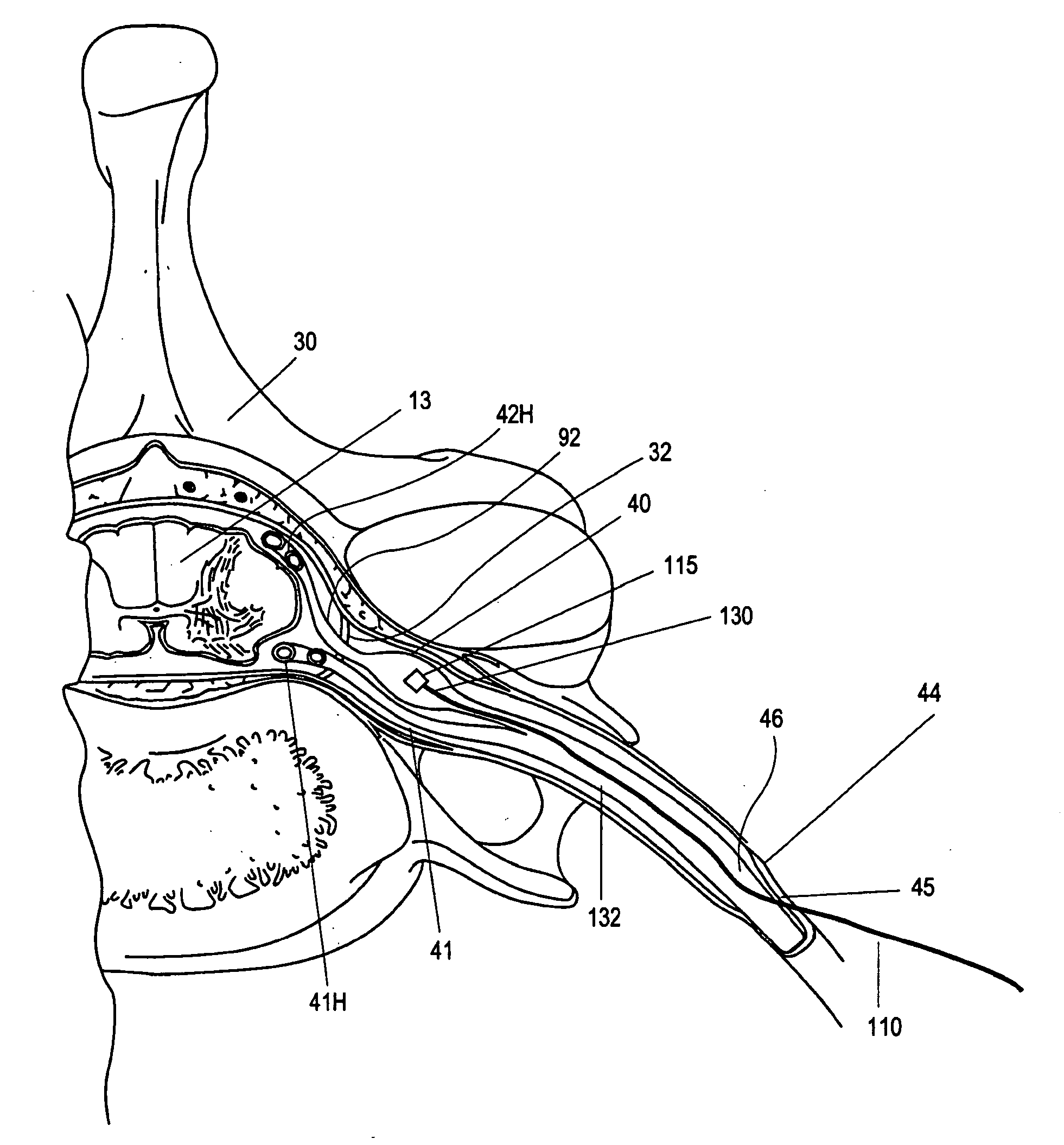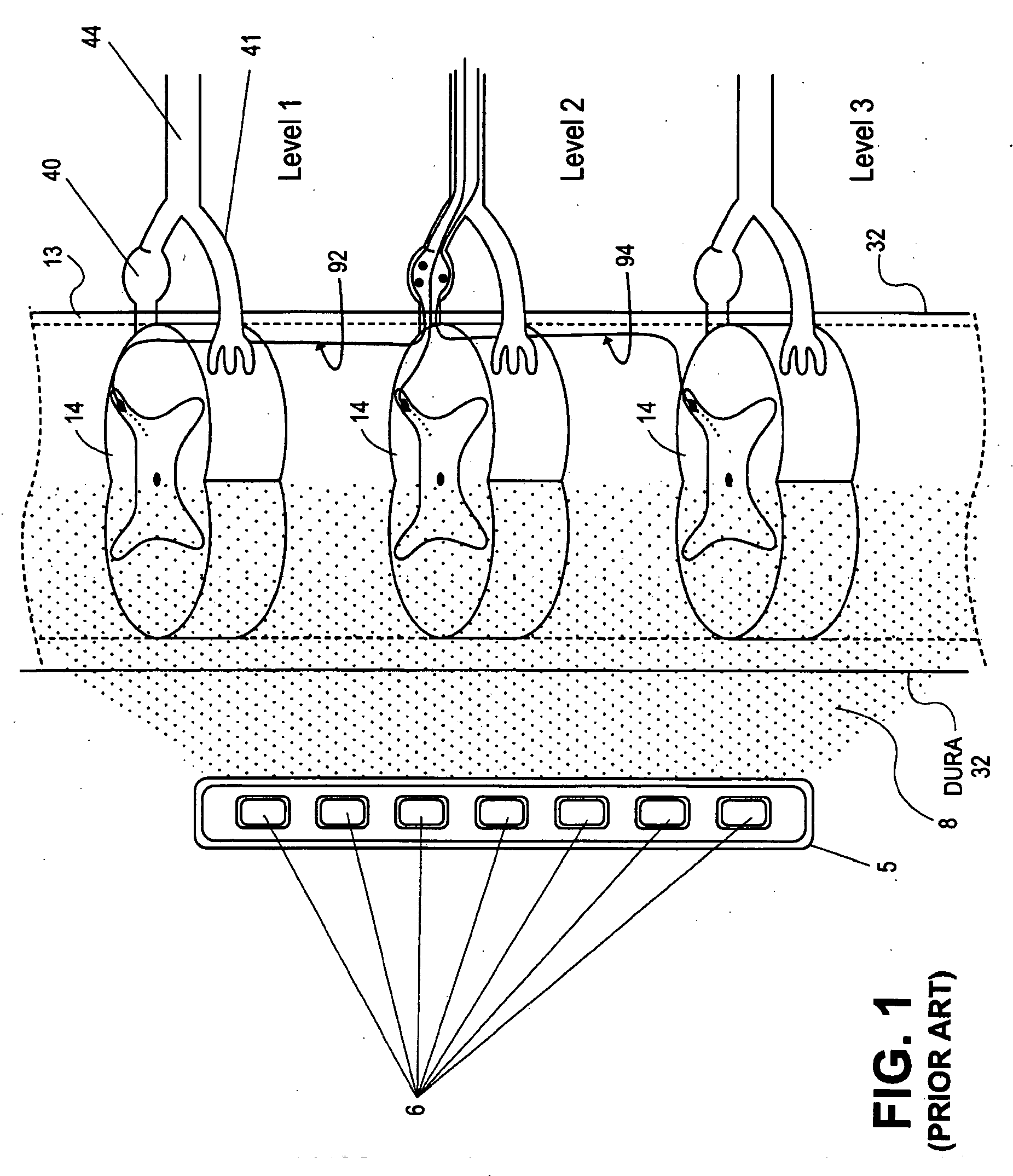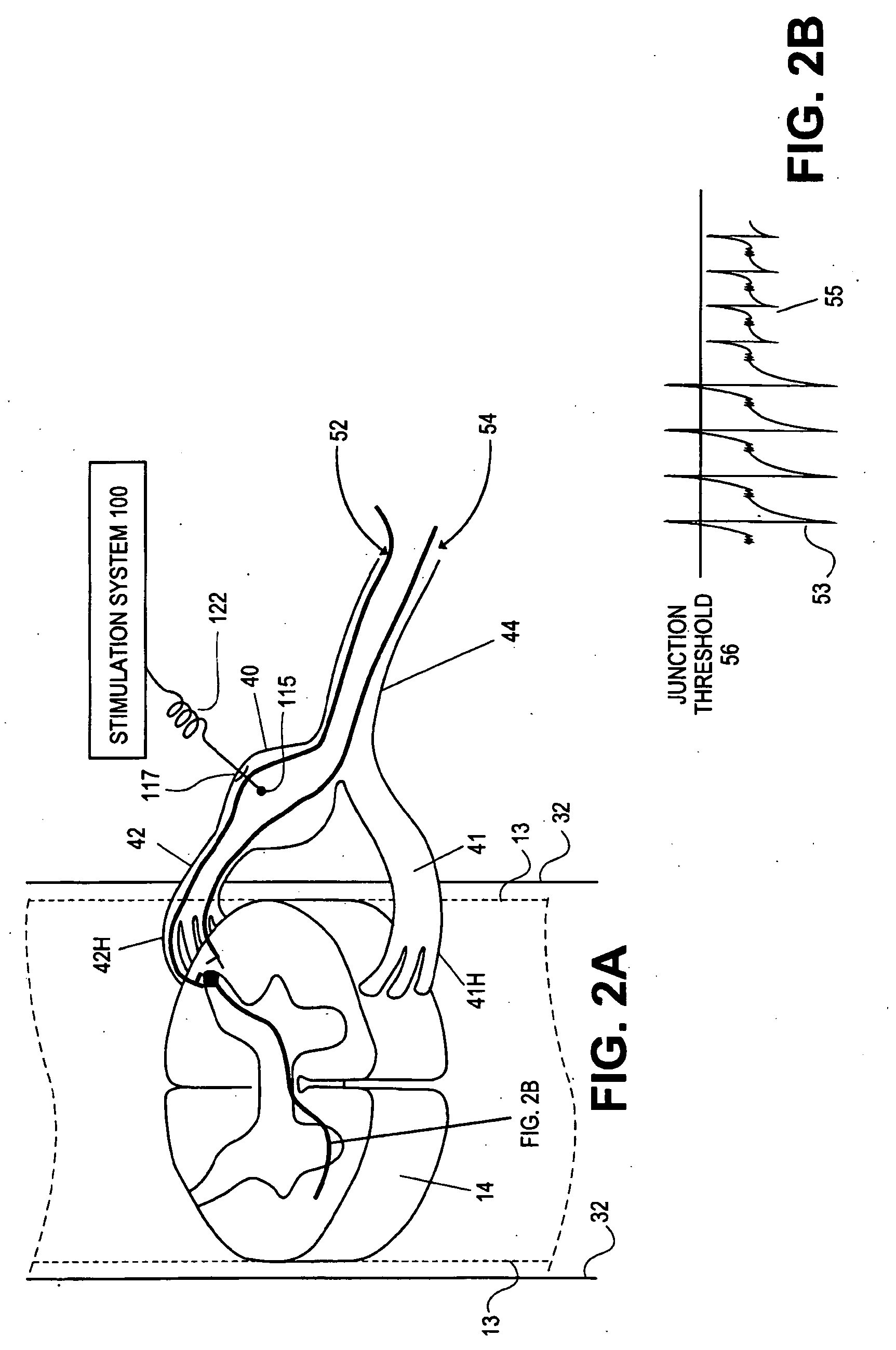Stimulation components
a neurostimulation and component technology, applied in the field of neurostimulation methods and systems, can solve the problems of inability to precisely control the amount of stimulation energy needed to provide the desired amount of neurostimulation, inadvertent interference with nerve transmission pathways in adjacent nervous tissue, and difficulty in reducing the amount of stimulation energy needed to provide neurostimulation, so as to reduce the amount of electrical lead movement and reduce the effect of electrical lead movemen
- Summary
- Abstract
- Description
- Claims
- Application Information
AI Technical Summary
Benefits of technology
Problems solved by technology
Method used
Image
Examples
Embodiment Construction
[0073] Embodiments of the present invention provide novel stimulation systems and methods that enable direct and specific neurostimulation techniques. For example, there is provided a method of stimulating a nerve root ganglion comprising implanting an electrode into the nerve root ganglion and activating the electrode to stimulate the nerve root ganglion. As discussed in greater detail below, the nerve root ganglion may be a dorsal root ganglion in some embodiments while in other embodiments the nerve root ganglion may be a nerve root ganglion in the sympathetic nervous system or other ganglion or tissue. In some embodiments, implanting the electrode includes forming an opening in the epinurium of the root ganglion and passing the electrode through the opening and into the interior space or interfascicular space of the ganglion.
[0074] In other embodiments, portions of an electrode body pass completely through a ganglion while maintaining an active electrode area appropriately posi...
PUM
 Login to View More
Login to View More Abstract
Description
Claims
Application Information
 Login to View More
Login to View More - R&D
- Intellectual Property
- Life Sciences
- Materials
- Tech Scout
- Unparalleled Data Quality
- Higher Quality Content
- 60% Fewer Hallucinations
Browse by: Latest US Patents, China's latest patents, Technical Efficacy Thesaurus, Application Domain, Technology Topic, Popular Technical Reports.
© 2025 PatSnap. All rights reserved.Legal|Privacy policy|Modern Slavery Act Transparency Statement|Sitemap|About US| Contact US: help@patsnap.com



